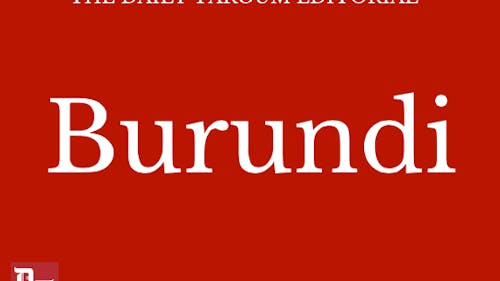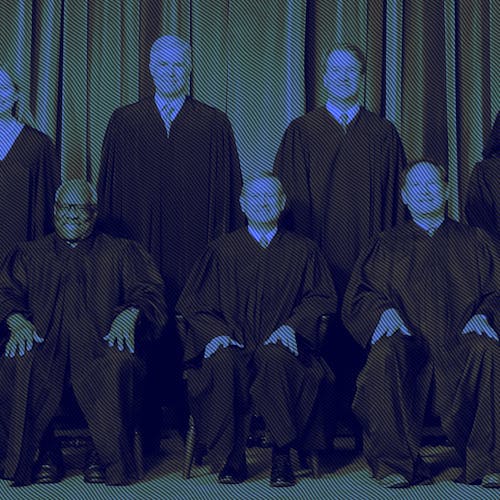EDITORIAL: Turning blind eye to issues in Africa

Part of an already volatile region in Africa, Burundi is at the cusp of a civil war. There are accounts of mass killings in the country, and the United Nations Human Rights Council unanimously backed a resolution that calls for a team of independent experts to investigate abuses in order to prevent its escalation. Deaths at the hands of government security forces and other armed groups began in April when President Pierre Nkurunziza announced a decision to run for a third term and protests erupted. Many of the 400 people that died were considered to be extrajudicial killings, and more than 3,496 people have been arrested. This small country in Central Africa is experiencing great turmoil under political repression and political cleansing.
“Politicide” is the proper term to encapsulate the destruction occurring in Burundi. Those who oppose Nkurunziza’s stronghold of executive power are subject to death or prosecution. The incumbent deployed government forces to utilize threats and/or violence to silence the opposition, and this aggressive restraint on free speech prompted journalists and human rights activists to flee to neighboring countries. Many seeking safety have settled in Rwanda, which, similar to Burundi, has Hutus and Tutsis as its major ethnic groups. Rwanda is considered to be one of the most repressive nations, where the government actively mutes attitudes and feelings of discord. So when Burundians are opting to stay in Rwanda, a country facing its own mounting problems, it’s indicative of Burundi’s increasing devolution.
Comparisons between Burundi and Rwanda have regularly been made, not only because they have similar ethnic compositions, but also because of the rhetoric used by political leaders in Burundi that are reminiscent of the tactics used during the Rwandan genocide. On the radio, hosts are employ language that demonize the opposing party and portrays them as “cockroaches” in addition to other methods of dehumanization. The parallels between Rwanda and Burundi have drawn attention to the massacres in Burundi today, but for the most part the issue is under the radar of the majority of the population outside of Africa. When there were signals that indicated an impending genocide in Rwanda back in 1994, people around the world did not react, and it was brushed off as a problem that would solve itself. This large-scale tragedy could’ve been prevented by intervention or global aid. However, its signals were met with a passive glance.
There are several countries that are transitioning to authoritarian rule or have established dictatorships throughout the world, so people have become desensitized to massacres — especially if it occurs in Africa. Acts of atrocities that occur in African nations aren’t given with the same sympathies another region usually would have. The recent Paris attacks caused an outpour of grievances from all over the world, and it united various peoples and countries behind France. As opposed to the horrors in Paris that lasted several days, the problems in Burundi are ongoing realities that people continue to face day to day and they are in constant fear of their lives.
Because Burundi is so distant and its culture appears foreign, people outside of the region don’t relate to what is happening. However, it isn’t that they can’t relate — there are still more similarities between humans across the globe than there are differences, and anyone can understand a voracious power-grab or the pain of death when they see it. The issue in Burundi begs for humane intervention.
What is occurring in Burundi doesn’t exist in an ethical vacuum. It is difficult to justify death, let alone arbitrary deaths of a large number of people. The politicide in Burundi should be an immediate and important concern for people outside of the country.
___
The Daily Targum's editorials represent the views of the majority of the 148th editorial board. Columns, cartoons and letters do not necessarily reflect the views of the Targum Publishing Company or its staff.



